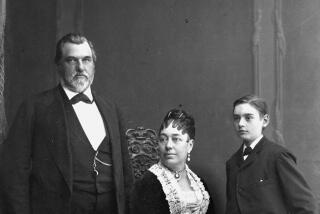Jury Verdict Awaited in Woman’s 1988 Slaying
- Share via
Jurors began deliberating the fate of Alan Michael (Buzzard) Stevens, accused of murdering 26-year-old Cynthia McVey in 1988 and dumping her body near an isolated stretch of road on the Pala Indian Reservation.
The jury was given the case after attorneys on both sides presented closing arguments Tuesday morning in a packed courtroom.
Defense attorney Milly Durovic, in the only surprise of the morning, admitted that her client had some connection to the murdered McVey, but she argued that Stevens did not kill the Northern California woman.
In asking the jury to find Stevens guilty only of being an accessory after the fact, Durovic said, “I think the evidence shows he disposed of the body.”
Durovic told the jury that the prosecution case is based solely on circumstantial evidence, and that Chief Deputy Dist. Atty. Brian Michaels is asking the panel to make unwarranted speculations. “There hasn’t been one witness who pointed to Alan Michael Stevens and said ‘I saw him kill (McVey),’ ” Durovic said.
Michaels argued to the jury that not only did Stevens kill McVey, but it occurred during a sexual assault.
“She was murdered in the course of a brutal rape in which . . . she was beaten, tied, gagged, strangled and dumped,” Michaels said.
The jury is weighing evidence it received during seven days of testimony, including a statement from Lori Ferguson, an acquaintance of Stevens, who quoted the heavily tattooed man as saying, several hours after the body was discovered, “The girls, the girls, I’m running out of places to hide the bodies.”
Michaels told the jury, “Hours after she’s killed he’s talking about hiding bodies. Ladies and gentlemen, you don’t get better circumstantial evidence than that.”
Additional prosecution evidence that attempts to link Stevens to the murder includes his fingerprints on a piece of tape that was used to hold in place a sock stuffed into the victim’s mouth. These fingerprints “broke the case,” Michaels said.
Durovic told the jury that “there are two reasonable interpretations in this case,” and she suggested that McVey may have died of a heart attack caused by an overdose of methamphetamine.
Stevens is the only person to have been charged by the Metropolitan Homicide Task Force, an interdepartmental agency set up to investigate the murders of 43 women, most of whom were prostitutes and whose bodies were found in remote areas.
Among the courtroom spectators Tuesday morning was Assistant Dist. Atty. Bonnie Dumanis, a member of the task force. Michaels said during hearings earlier in the trial that the task force is attempting to link Stevens to other prostitute murders.
More to Read
Sign up for Essential California
The most important California stories and recommendations in your inbox every morning.
You may occasionally receive promotional content from the Los Angeles Times.











